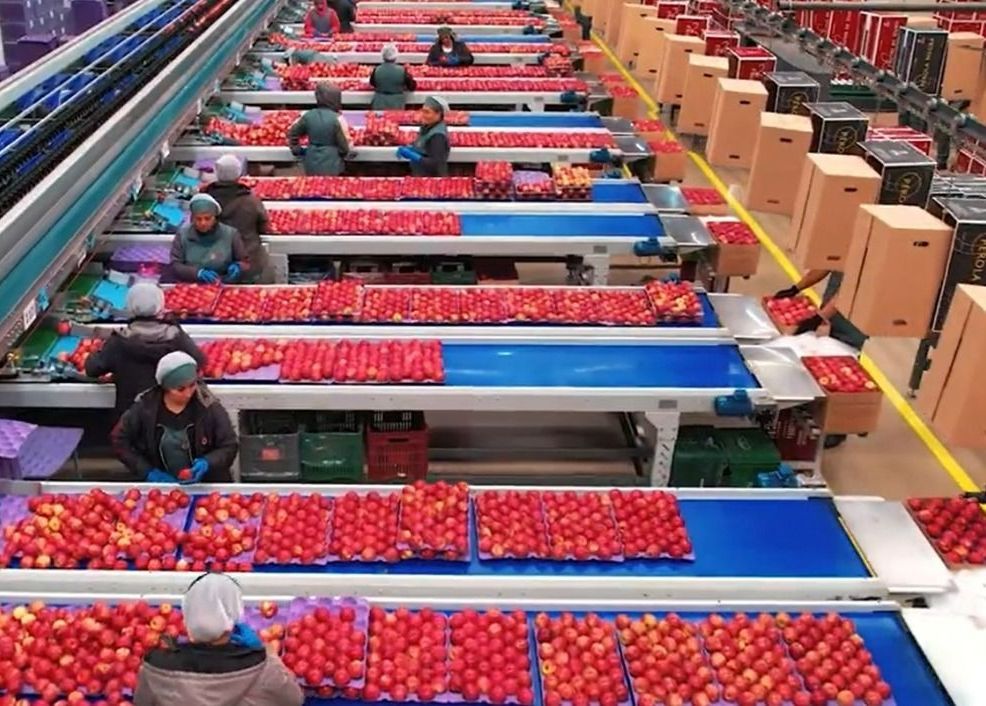
Processing and Storage
01
Packing House
02
Conservation Technologies
The Cooperativa Agricola Frutas de Ouro has a modern Packing House with the capacity to store and process 12,000 tons of apples.
The cold storage blocks are made up of rooms with a storage capacity of 150 to 250 tons, which keep the bins (harvest boxes) of apples stored until the time of classification.
Modern controlled atmosphere and dynamic atmosphere preservation technologies are used, which are essential to preserve the crispness, flavor, pressure, and other organoleptic characteristics of the apples. The fruits are kept cold until December and are removed from the chambers daily for processing.
03
Processing and Classification
04
Classification by quality
Processing involves the practice of grading apples, which is carried out in accordance with the standards and legislation of the Ministry of Agriculture. At this stage, the stored fruits are classified by size, color expression, and presence of small defects in the skin of the fruit. Sizes vary according to the weight of the fruit, being classified from caliber 60 to caliber 220, which corresponds to the number of fruits that are packaged in 18 kg boxes.
In the grading process, in addition to weight, apples are separated by visual quality. This separation follows the rules of the legislation established by the Ministry of Agriculture and aims to standardize the fruits according to the uniformity of color and the presence of small defects in the apples.
In this process, apples are separated and packaged into four categories: Extra, Cat1, Cat2, and Cat3, always seeking to maintain quality and stability in the various categories.



